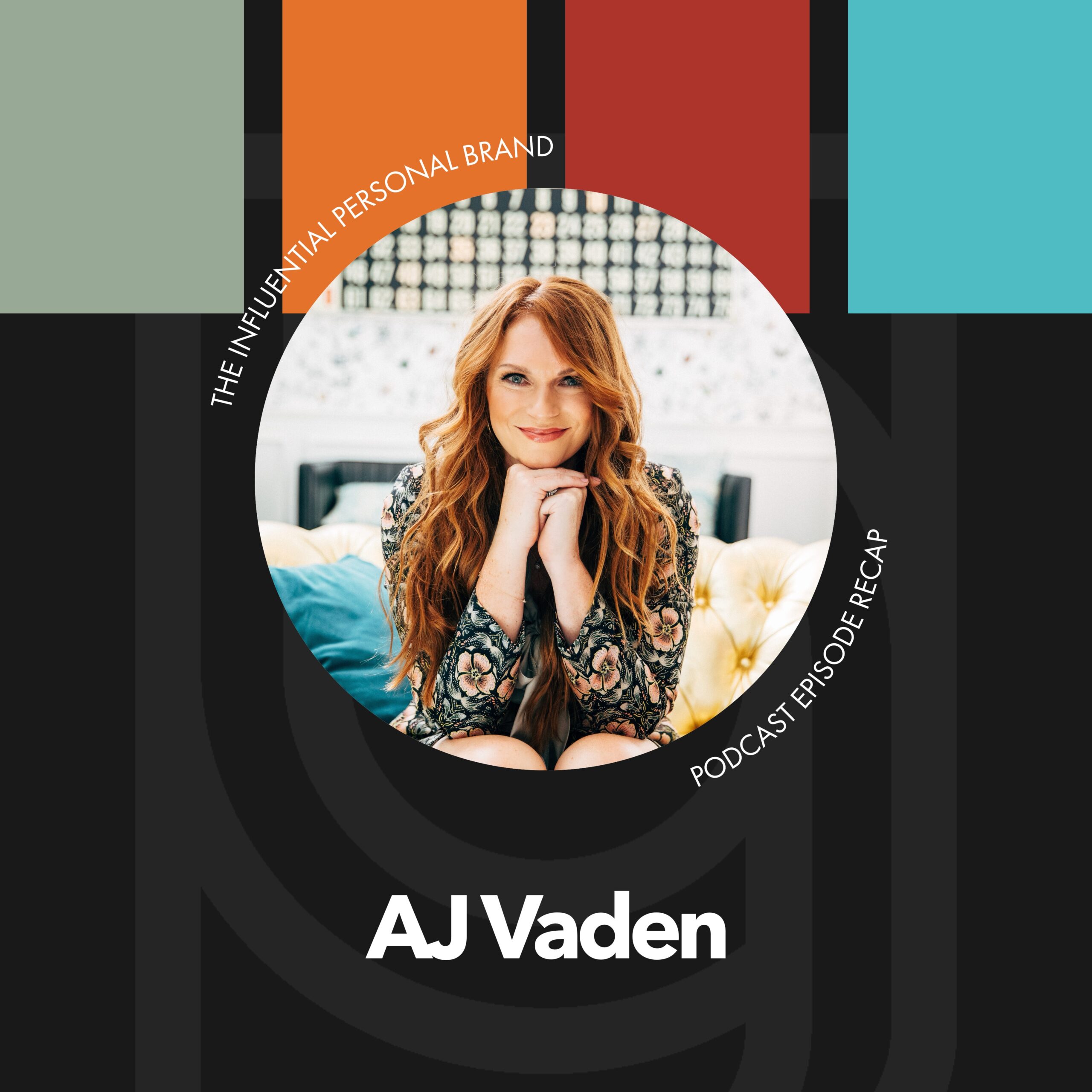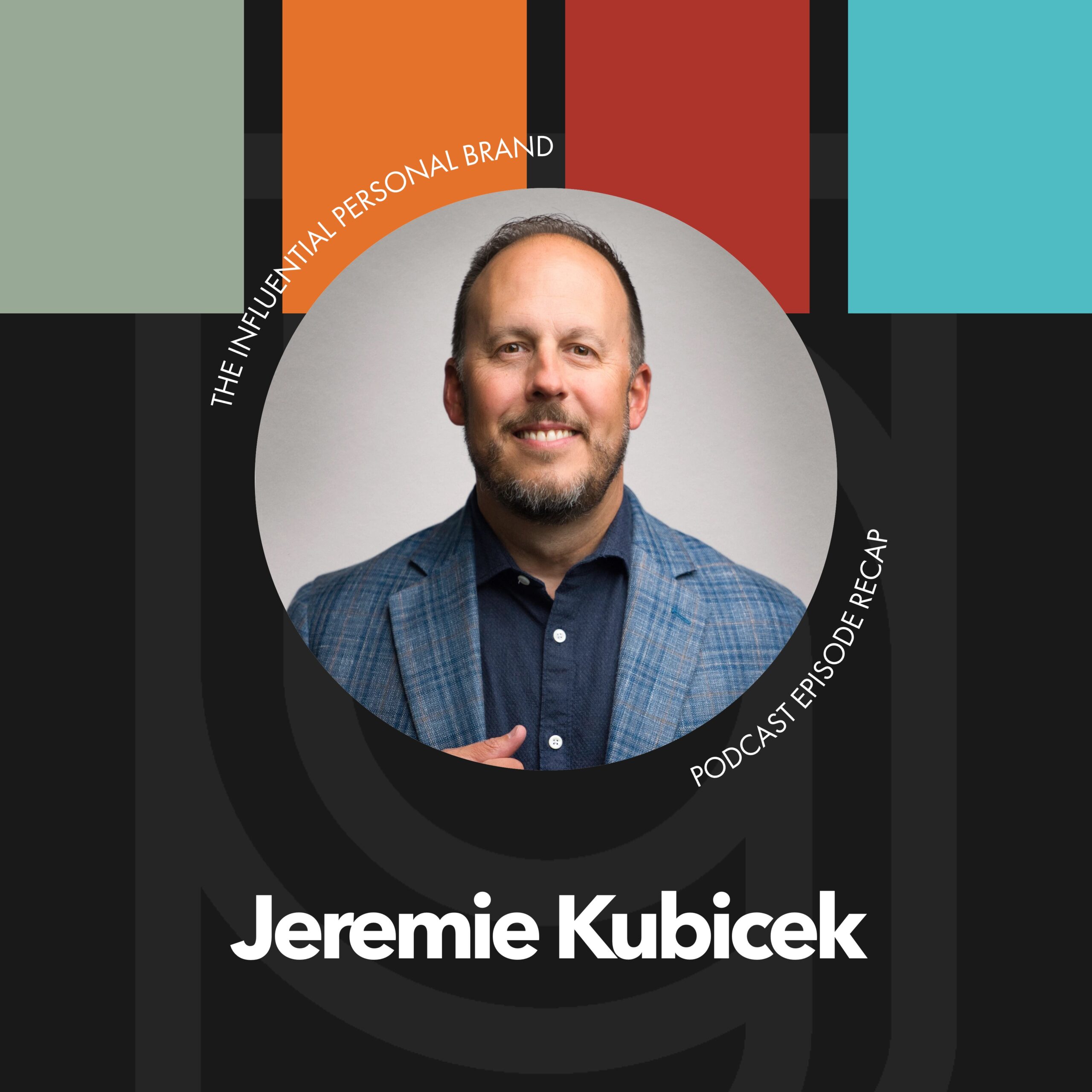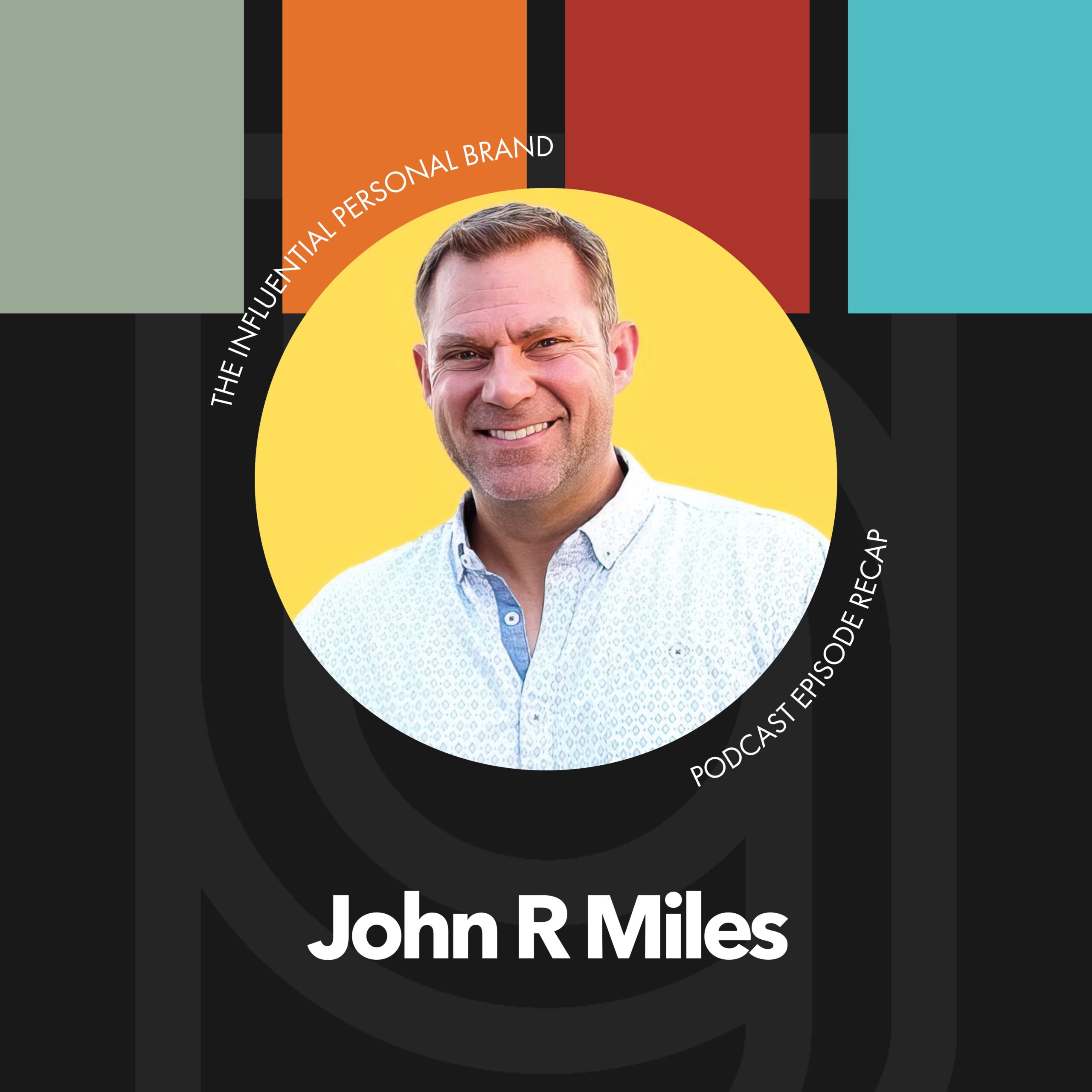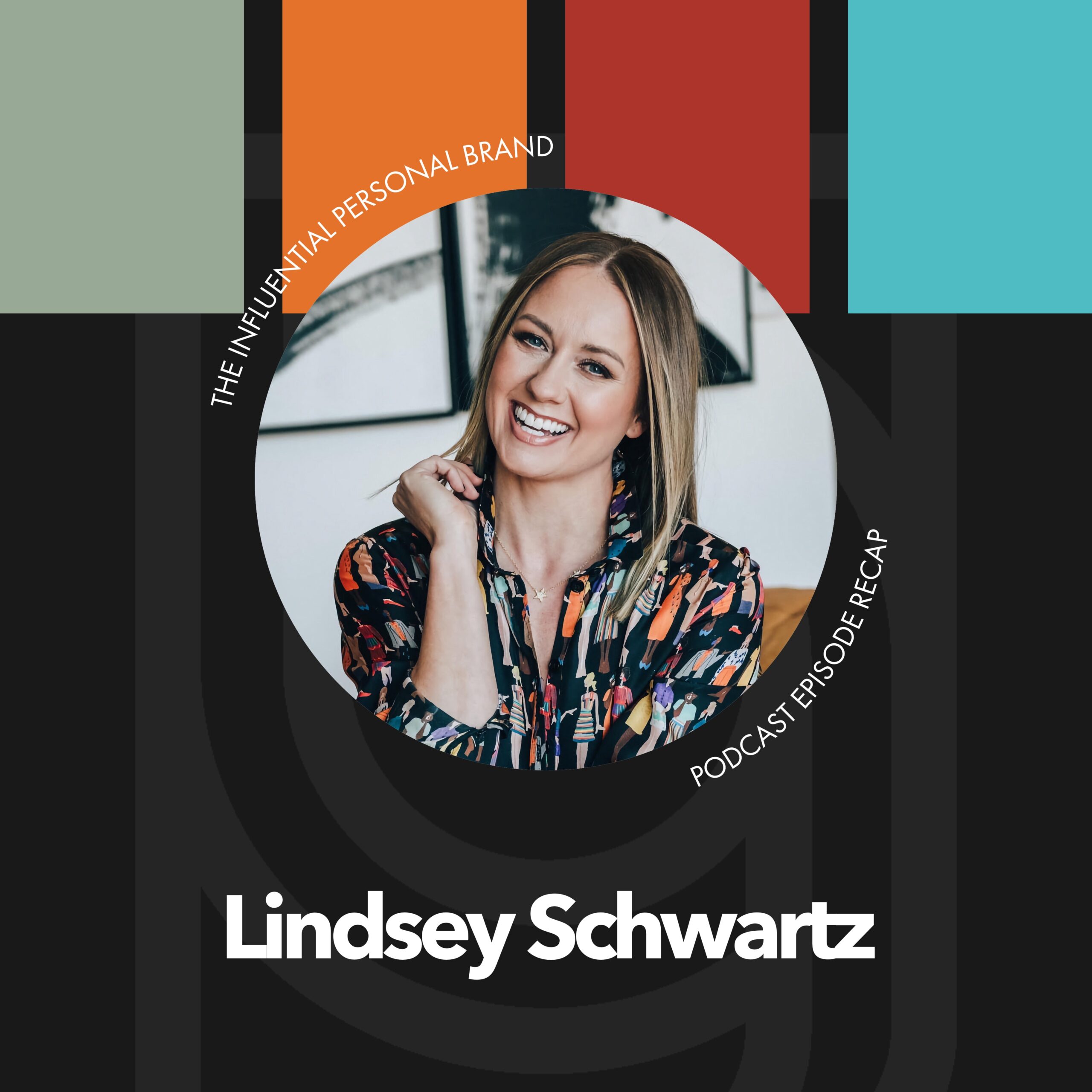RV: (00:00)
Hey, welcome to the special recap edition of the influential personal brand podcast. We are back, Rory and Aja Vaden, husband and wife, best friends, business partners, and your partners and guides and mentors and roles and leaders. Hopefully for you as a support coach on your journey to build and monetize your personal brand. We are breaking down our top three and three from the Andy Andrews interview. And I’ve known Andy for a lot of years. We’ve known Andy for a lot of years.
AJV: (00:31)
I was a reader of his work way before anything else.
RV: (00:35)
Yeah. And he was one of our big mentors. If it wouldn’t, if it weren’t for him and his work, we probably would have never become authors, probably never would become New York times bestselling author for sure. And so he’s made a big impact on us. And so it was really cool to get to bring you to him or bring him to you so you could hear so AGL, I’ll give you the, why don’t you take it away? Give us, give us what was your number one takeaway?
AJV: (01:00)
Yeah. I think my number one takeaway is this whole idea that your learning has to come before your writing. It’s a, you can’t think that you can just say the same thing over and over and over in five, six, 10, 15 different books and people aren’t gonna realize like, Hey, this is just regurgory regurgitated, repackaged information.
RV: (01:24)
You don’t want regurge [inaudible] nobody wants for their surgery.
AJV: (01:29)
But I loved how he said, he said, listen, I’m not going to be one of those guys who just says the same thing and then have my editors and publishers spin it and repackage it and sell the audience the same old thing that just looks slightly different. He goes, I really want to provide different and unique messages that mean something that I really provide value based on my own personal life experiences or those that I have come in contact with. And I love that. So just the whole concept of you can’t be continually writing a proof prolific information or valuable information or even at its most basic element worthwhile information if you’re not continually out there learning ahead of your writing.
RV: (02:11)
That’s my number one. Yeah. That was my number, my number one too. And I just, I think as an author it’s a, it’s an important thing that you see a part of your job is learning a part of your job is learning. Like it’s, it’s, it’s not separate from the writing process. It’s the first step in the writing process is to be learning. And I think, you know, part of how you create a different angle on the world or a different, a different view is because you’re assimilating all of this information from a number of a number of different sources. And I think so is this your number one as well? Well, that was my number one as well. And, and my number two is where he talks about also I love what he said. This, I want to say the quote exactly.
RV: (02:58)
He said that part of the role of a great author is to dedicate yourself to seeing the details that will be valuable to other people that most people overlook. And so I think in addition to learning, there’s, there’s learning and then there’s paying attention to and there’s zooming in on and there’s highlighting. And that’s a really important skillset. Also a great comedians. You know, he talked about talks about that as well, about what makes things funny. But as for you to, you know, grab one little point out of everyday life or one little point out of a book or a show or something and be able to zoom in on it and, and teach that as a learning point for everybody. Everybody. So that was my number two thing is just kind of the skill of learning is number one. And then the skill of zooming in and noticing is number two.
AJV: (03:46)
Yeah, it’s the notice the notice. So and I don’t really know how this connects, and this isn’t really a point, but it’s a side comment. So I’m going on a tangent, but on this concept of honing in and really focusing on one point, I think one of my biggest pet peeves in the professional workplace, both as a leader, as a student all of the above wrapped up into one is when people read for the sake of reading and not for the sake of learning. And I think as a leader in our former life and I, you know, I had, you know, over whatever, 75, 80 direct reports for many years and I would give away books often. I still give away books often. And I would have people come back to me all the time say, yeah, I love that book. And they’d show it to me and it’s underlined and it’s highlighted, but I would never see notes.
AJV: (04:38)
And I would say, so what have you applied? Like what was your biggest takeaway? And they would give me some sort of general synopsis and I said, no, no, no. What did you do after reading this? What did you learn? How did it change your thinking? How did it change your actions? How did it change your conversations? And so often I realize like they just read it for the sake of reading, but not for the sake of noticing something that was very unique and intentional that they could then apply in their life or in their work. And I, what I love about Andy is he is so intentional on the little details as well as the big overarching, you know, message or concept. But it’s like you’ve got to notice the little things and you’ve got to implement the little things in order for it to work.
AJV: (05:25)
You don’t have to make huge big changes to see big huge differences. Little ones can many times be, all it takes is a little tweak here and a little tweak there. But gosh man, it’s one of my biggest pet peeves in the workplace is when people don’t notice the things that need to be fixed. It’s like you walk away, you lucky walk away, you walk around all day with like blinders on. I attended sunglasses that I don’t, I don’t enable you to see the whole picture. And I’m like, you’ve been doing this for years. How have you never noticed this and because you’re not actually trying to, I love that about Andy and his whole, and I think the reason, okay, so I’m going to tie this together so it actually makes sense of why I’m going on a tangent here. I think one of the things that he speaks about writes about and that he just is about is what are the things that make a really big difference even if you don’t feel things that you have done, things that could make a difference.
AJV: (06:21)
So he said that for him, for example he hasn’t won five super bowls and he hasn’t been the owner or CEO of some big company and he doesn’t have like these big huge championships, these one or these like crazy life stories. Like he didn’t, he was, he didn’t land a plane on the Hudson and he didn’t do all these things. He said, my supernatural gift has been to notice, to notice the things that no one else takes the time to notice and then to write about them and to talk about them and to build that. One thing that I noticed and to add whole collection of work. And I think that should give everyone a lot of confidence of going like you too can be a noticer. You two can pay attention to the things that are happening in your surroundings, in the news or on social media.
RV: (07:07)
If you’re any type of a speaker, an author, I mean that’s what people are paying for you to do is to help distill the world around you and make it directly applicable. And I think that that is a part of, you know, to what you’re saying about the reading and the absorbing is that it’s almost like real learning is evidenced by the fact that action takes place afterwards and people rely on you as a thought leader to, to distill the information down, to communicate efficiently, concepts that they can then go, Oh wow, I didn’t see all of that. But you took all of that in and then you gave me the nugget and now I can make a change in my life.
AJV: (07:45)
Yeah. So I think, I guess my point number two is be a noticer. Like be a noticer. Pay attention and then share your unique twist on whatever it is that catches your attention. Well, whatever it is that notices or whatever you notice and actually be a noticer.
RV: (08:02)
Yeah, love that. So that’s worth it’s worth striving for. For me, the third one was actually pretty simple. It’s is something that I think I, I share as a personal philosophy with Andy is he says, you know, I strive to write books that will last a hundred years because they’re based on time tested principles. And I think it’s sort of like, you know, in, in any, anything that you’re teaching, any type of information or marketing or or knowledge based transfer. There’s, I almost think of like these two, there’s like two planes, there is, there’s practices and then there’s principals. So principals are the timeless truths that never change. And then there’s the practices which are like the really specific tactical things. And a lot of times those do change. And so it’s a little bit of a balance of both. But you just have to at least be aware that if your writing or teaching or you’re creating a video course, that’s all practices is very specific.
RV: (09:00)
It can change over time. You know, think about teaching practices of social media. Those would change frequently. You’d have to update with new screenshots at least once a year most likely. But the principles of, you know, social marketing or word of mouth marketing, those have been true forever and they would apply even regardless of if the medium is social media or word of mouth or you know, whatever. And so I just thought that was interesting that he noticed that and that was something that he does deliberately. And you know, I tried to strive to do that too is I really want to peg the principal so that you know, when Jasper Liam or reading something 20 years from now they would go, wow, this is still, this is still true today.
AJV: (09:44)
Yeah. You know, it’s interesting. That wasn’t my third point, but I’m going to borrow yours and make it my third point, which is, you know, it’s so funny because I had to go to the dentist this morning and my dentist has like these huge TVs like right above you. So I guess you don’t have to talk to the hygienist is they clean your teeth. I don’t know why they do it, but they always have the same show on. It’s the only time of the year. I watch it for 20 minutes, twice a year as the what’s her name? Kelly Ripa and Ryan Seacrest. Right. So it’s their show. And it was so funny because today they had a Harry Potter on, don’t know what his real name, Harry Potter, I have no idea. But Kelly was talking about how Halloween this year, 2019 that she had a ton of Harry Potter costumes and she was like, I mean, Harry Potter has been out now 15 years, 15 years.
AJV: (10:35)
And they were talking about how there’s an art of performing timeless stories. And that’s very much what Andy was actually talking about in the interview today is how do you write something that’s not trendy that regardless if it was now or in 30 years, you’d be like, wait, when was this written? And then as I was thinking about it as you were talking over the weekend who were in, I watched a masterclass by Sarah Blakely on entrepreneurship. That was awesome. But here’s the thing that was amazing. I mean first female, self-made billionaire ever. She could have talked about so many things to do with what it means to be an entrepreneur and take your concept to product and then to market and then to go from a million to 10 to hundred to billion. That’s not what she did. Her masterclass is about mindset and what I loved most.
AJV: (11:28)
I think the biggest thing that I remembered is she was like my dad when I was young. I gave me a Wayne Dyer cassette tape or whatever it was, whatever. And that didn’t make me thinking it’s like, cause people still listen to you and read Wayne Dyer today. And it’s like, and it was already old when she got it. It is that timeless thing about the way you think and the way you view things and mentality and mindset and philosophies and principles, not just the tactical practices of what you do. And I think too that if you’re trying to appeal to the masses, if you’re really trying to enhance and grow your personal brand in a way that really does set you off on a trajectory to be known and to break through what we call she hands wall. Some of that has got to be a little less tactical, a little less practice and a little more philosophy and principle, principle and mindset and the way you think.
AJV: (12:29)
And I think those are a lot of the timeless principles that we tend to get away from because we think people don’t want those. We think people need to know how do you do this and what do you do and how do you go from here to there where many times the real key of even doing that is the more soft skills as you would say, and how you think and how you view things and [inaudible] and I love that it’s like between this Harry Potter reminder this morning and the Andy, Andy’s Andy Andrews interview and Sarah Blakely, like those are three people all in the same weight from completely totally entrepreneurship, Hollywood movie author, but are all saying the exact same thing. And it’s how to be timeless. Like what are the timeless principles that really do withstand the trends and what’s just happening right now? So I love that.
RV: (13:19)
Yeah. So that’s your role, right? That’s a part of what you’re doing. Somebody out there, right need right now needs for you to help them interpret the world around them. They need you to help them distil all of this information down in, into actions and mindsets that they can apply directly into their life as such an important role. And what a gift to be able to go out and do that on every given day. So go ahead, go forward, do that, and we will catch you next time on the influential personal brand. Okay.














